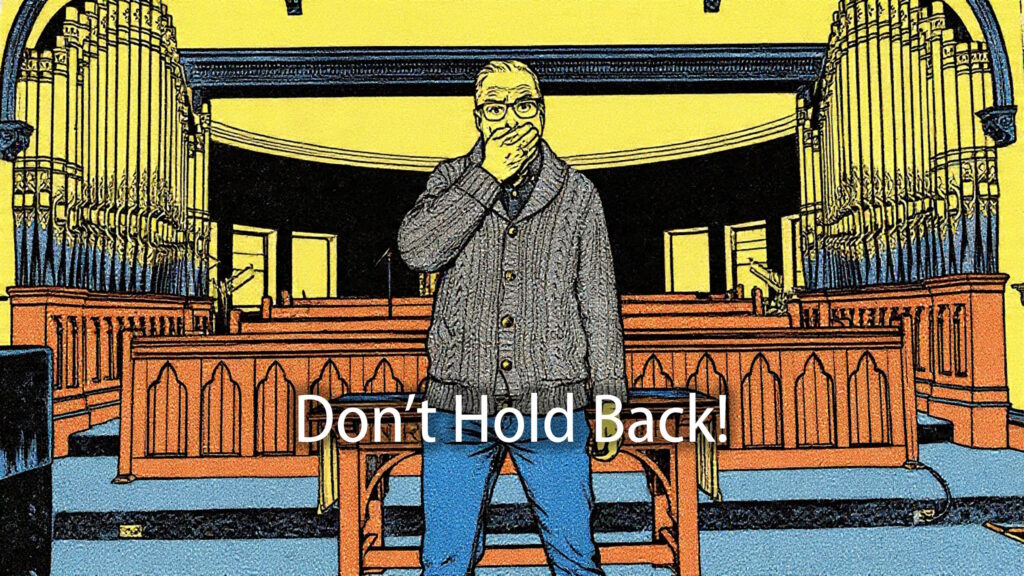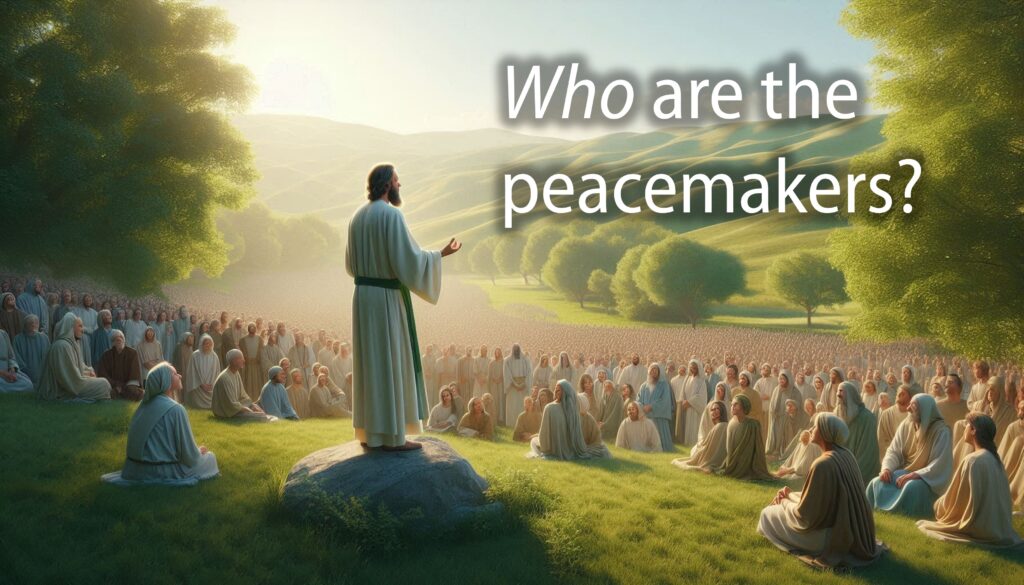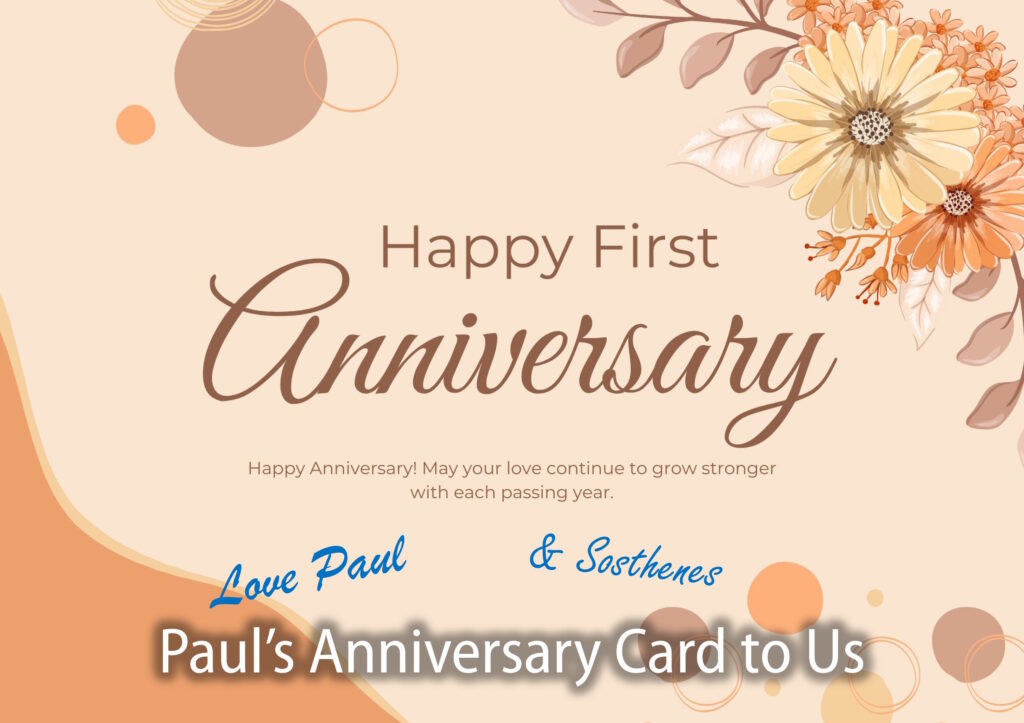Watch sermon video here:
Hespeler February 15, 2026 © Scott McAndless – Transfiguration Sunday
Exodus 24:12-18, Psalm 99, 2 Peter 1:16-21, Matthew 17:1-9
Six days ago, Peter had made an extraordinary confession and declared that Jesus was the Messiah and the Son of the living God. (Matthew 16:16) Jesus had praised Peter for his insight and understanding. And he had even given him a promise. “Truly I tell you, there are some standing here,” (and yes, Peter was sure that Jesus was talking especially about him). “There are some standing here who will not taste death before they see the Son of Man coming in his kingdom.” (v. 28)
But ever since Jesus had been so depressing, talking about nothing but suffering, death and such things. Peter had tried to talk him out of his funk. I mean, sure, he understood that life was hard and the work they were doing was draining, but that was no reason to get so negative. But Jesus wouldn’t hear of it. He told Peter off for daring to rebuke him. (v. 22-23)
A Long Six Days
In short, it had been a long six days. Peter was getting so impatient. He had been promised that he would see a new kingdom coming. And sure, the full coming of such a kingdom might take some time, but could he not be given some glimpse, some indication that he had not been wrong to put his faith in Jesus.
And so, when, on the sixth day, Jesus pulled him and James and John aside from the others, Peter couldn’t help but feel as if this was finally it. Surely Jesus was going to reward them for their faithfulness with some glimpse of what the kingdom was like.
A Tough Climb
But all that Jesus did was point to a high mountain on the horizon. It soared about two kilometres above sea level and, though it was now well into spring, it was still topped with some snow. “What do you say we head up there?” he suggested
They had brought no provisions with them. Their well-worn sandals offered little protection for their feet and were constantly filled with sand and gravel as they scrabbled up the slope. And the higher they went, the colder the winds blew. They wrapped their cloaks as tightly around them as they could and struggled to keep up with the pace Jesus had set.
What Was the Point?
Peter couldn’t help but grumble along with his stomach. What was the point of putting them through such a difficult ordeal? He appreciated that Jesus wanted to give them a special experience that would be denied to the others. But did it have to be so hard? Couldn’t they have just gone off a bit into the bushes or something?
Jesus did not explain why. He just encouraged the three of them to try to keep up as he went on ahead. By the time they had finally reached the summit, they were all exhausted and starving. They shivered in the cold air and panted as if there were not enough oxygen.
When the white mist began to form before his eyes, Peter honestly didn’t know if a cloud had come down from the heavens to kiss the mountaintop or if he was about to pass out.
A Story Told Thrice
The story of the transfiguration is told in three of our four gospels, and the three accounts are virtually identical. I mean, for the most part, they are word-for-word the same. Which, if I can be completely honest for a moment here, can be kind of annoying for Christian preachers who follow the lectionary, which tells us to preach on the story using one of the three basically identical passages every single year.
As a result, we tend to obsess over the smallest variations between the three stories. So, this morning, we read Matthew’s version. And there is one tiny difference in Matthew’s account that I believe contains a very important message for us today. It goes to the question of what actually happened on that mountain.
Mark and Luke’s Vagueness
Now clearly, all three gospel writers see what happened on that mountain as real and significant. All three disciples experienced something that was mind-blowing up there. But Mark and Luke are vague about the material reality of that experience.
They talk only about what the three saw, felt and heard. That leaves open the possibility that they were observing physical reality. In other words, Jesus’ appearance was physically changed. Moses and Elijah were standing there, and you could have touched them. A voice boomed from heaven at a particular volume and frequency.
So, as Mark and Luke tell it, if a film crew were there that day, it is possible that they could have captured all of that. And that would definitely be the most amazing documentary to hit the theatres in all time. Why, it would be even bigger than “Melania!” That is all possible, at least the way the other two evangelists tell it. Though, of course, it is also possible that they are describing a mystical experience rather than a physical one.
Matthew’s Difference
But Matthew describes the experience differently. On the way down the mountain slope, Matthew tells us that Jesus warned the three men, “Tell no one about the vision until after the Son of Man has been raised from the dead.”
So Matthew intentionally removes the ambiguity for us. He tells us, in no uncertain terms, that it was a vision. And so, I have to ask the question: what does that change?
First of all, let me say that it doesn’t mean that their experience was not real or that it did not come from God. Visions are real, people have them and they can make enormous differences in this world, either for good or for ill.
Vision Limitations
Visions can also be shared, as happens in this story. Presumably, each of these three men have individual and unique experiences, but they are in such physical and spiritual alignment in this moment that there is also a commonality to their experience.
But there is one limit on such visions. They cannot be objectively verified. Matthew is effectively telling us that, if a film crew had been there that day, they would only have been able to capture the ecstasy of the individuals. There would have been no footage of Elijah or Moses, no audio of the heavenly voice.
How to Evaluate Such Experiences
I realize, of course, that some will dismiss any vision as having no validity. You can’t prove anything to scientists with a vision – even a shared vision – because there is no data to be verified. That is true. And we do need to be careful not to claim too much for a vision or other spiritual experience
But that does not mean that such spiritual experiences are meaningless or worthless. There is no question that what Peter, James and John experienced on that mountain meant a great deal to them and they descended from that mountain as changed men who had seen confirmation of what they believed about Jesus.
Other people, those who weren’t there on the mountain, might well be moved by hearing the accounts and even choose to believe the truths that the three took away. But it is always harder for the people who were not there, and that is perhaps one reason why Jesus cautions them not to share the vision. Perhaps the others will not be ready to believe just based on the experience of the three.
Why There?

And that leads me to the question that really bothers me about this whole story. Why did this experience have to happen in such a difficult and inaccessible place? And why did it have to be limited to those three? If Jesus really wanted to show the disciples who he was, then why not just book a nice room in a hotel with room service and bring everyone in and let them experience it for themselves?
It happens on the top of a mountain, and I know that mountain tops have long been seen as places for such things to happen. As long as there have been humans, we have built sanctuaries and temples on mountain tops. That includes all of the temples and high places of Ancient Israel. Moses also had significant experiences on Mount Sinai and other mountains.
Where is God?
But is it just a question of spiritual geography? Is God spatially closer to us when we go up because we are getting closer to God’s heavenly abode? No, I don’t see it that way.
God is everywhere after all. We speak of God up in heaven, I know, but we don’t mean it literally. We know that “up there” is merely the edge of the atmosphere and then open space. There is no place on earth where you are closer to or farther away from God than you are right now.
So, the climb up that mountain that day represents something else. It is about the disciples arriving at that state of mind where they are open to the presence of God that is always there. And that is not something that comes easily to most humans.
Human Limitations
We humans have this way about us. We are constantly distracted. We are distracted by all the things we have to do, all the things we have to worry about or fear. So our mind – constantly on the move as it is – gets in the way of us experiencing that presence of God.
But it is not just our mind; it is also the body that houses our mind. Our body is constantly interrupting our quest for God with its appetites, demands and needs. We spend the great bulk of our time, attention and energy making sure that our bodies and the bodies of the people we love are okay. This is something that is a good and necessary part of our human nature.
But, with all of those things going on, how can the presence of God break through to us? And how will we be able to detect that presence in the midst of the chorus of demands that surrounds us all the time?
Preparing for the Vision
That is why visions and other spiritual experiences are so rare. It is not because God is absent. It is because we are distracted. And so, Jesus says to Peter, James and John, “Come, let us climb that extremely difficult mountain over there.”
What did that arduous climb do for them? It exhausted their bodies. It forced them into a state where they had to ignore all hunger and desire. It reduced them to the point where they could only give thought to the most basic of survival functions – getting sufficient oxygen from the thin air into their lungs.
What Jesus was doing was getting them to the place where their human minds were prepared to receive the vision of “the Son of Man coming in his kingdom.” That is why it was on the mountain and away from the others.
Visions for Those Who Don’t Climb
And I believe that that is something that still happens. It certainly happens literally, I know, for those who test their bodies and endurance by climbing mountains. Many do report profound spiritual experiences on the peaks that they conquer.
I realize that not all of us will become mountain climbers. So don’t worry. I am not saying that you will never experience the power and presence of God without taking up mountaineering. But I do believe that the mountain-climbing in this passage is a metaphor for the kind of work that we have to do to prepare ourselves for such experiences.
Learning How to Prepare
Learning how to prepare your body and mind to experience God’s presence is something that we can all do, but it generally does not happen unless we work at it.
Those who take up meditation and contemplation, for example, will have such experiences. But it almost certainly won’t happen the first time they attempt it. It can take years and years of practice before you learn to quiet the demands of your mind and body enough for the voice of God to break through.
There are ways that you can learn to do this, and I have provided some pages at the back that you are welcome to take and study. You will not be surprised that many of them include getting your body to a state, much like you might find yourself after climbing a mountain, where all you are thinking about is your next breath. Then you just let even that concern go away.
Seeking the Vision
I do not doubt that, once they came to the top of that mountain, Peter, James and John did experience the presence of God in a powerful way. I also agree with Matthew that it was a vision.
It was a special and unique experience; every spiritual experience is. But that does not mean that it was not the kind of experience that you also can seek and find in this world, whether on the top of some mountain or in the silence of your own meditations.




